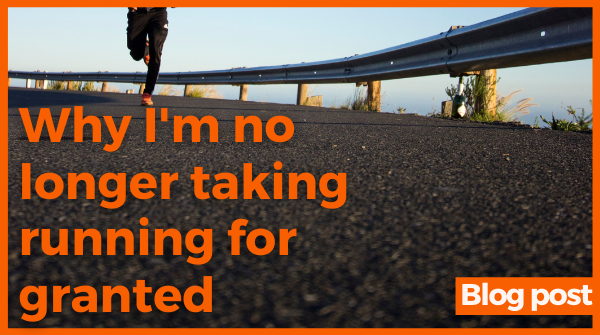Following an eight week layoff due to Achilles tendinopathy, I finally dug out the base layers this week, pulled on the compression socks, spent 10 minutes warming up, a further age foam rolling my calf, strapped on my trainers, locked on to a GPS signal and headed out the door. Five minutes later I’d finished my run.
I had spent more time going to the toilet beforehand but, nevertheless, the physio’s orders stated that my first rehab run was not to be any longer, so who was I to argue? The fact that I hadn’t broken a sweat made me wonder why I had bothered to get changed in the first place, but this was the first step on the road back to running, so jeans and chunky jumper didn’t seem quite right either.
The good news is that the Achilles held out and, as long as I allow 48 hours between runs and don’t increase the duration by more than 20% each time, I should be back on the trails before too long. However, this reintroduction to running has given me a fresh perspective on the activity I have taken for granted over so many years.
For as long as I can remember, if I have wanted to run, I’ve just got changed and gone. Of course, if I am honest with myself, on most occasions I haven’t bothered to warm up properly and at the end of 90% of runs I’ve swerved stretching in favour of a hot shower and something unhealthy to eat. I have never been an advert for running best practice.
Three years ago, cancer sharpened my focus in regards to looking after my body, but despite concerted efforts to improve my diet since, and at least mimic some kind of a warm up, I have still always just assumed that I would be able to run when I wanted to. My body may not always have been physically up for it, but my mental fitness would usually ensure that I got out of the door in order to at least work out the stresses of the day.
Thankfully my cancer was successfully treated, but as other survivors will likely know, six-monthly testing also puts an incredible mental strain on one’s wellbeing. My latest blood test earlier this week once again meant my wife and I were put through the ringer until the results came back - all clear, I am pleased to say. But not being able to run through it at my usual tempo has been tough and once again made me realise just how vital running has become to my mental health as well as my physical wellbeing.
At similar times over the last few years I’ve always coped with the worry of test results by pounding the pavements or hitting the trails to prevent me from dwelling on the possibility of bad news. Running has been the self-administered therapy I’ve relied on and, again, I have taken it for granted. Like the setting of the sun or Fulham Football Club’s perennial ability to disappoint, I have just assumed that it would never change.
This Achilles injury – while obviously not as serious as so many other common runners’ woes- has at the very least shown me that I can’t just assume that I’m always going to be able to head out the door whenever I want. I’m going to need to train properly if I want to ensure that I can run for the rest of my life and that means embracing all the things that I have so blatantly ignored to date: Warming up properly, stretching properly, occasional Pilates, yoga, cross-training, swimming and, perhaps most importantly, allowing myself enough rest time (I suspect a summer of five-runs-a-week may have literally been my Achilles heel). Much of this fills me with dread. In regards to flexibility, I am to bending what chocolate tea pots are to boiling water and, in terms of coordination in an exercise class scenario, I am the bloke at the back who's about 30 seconds behind the rest of the group. The thought, therefore, of dedicating time to stretching and mobility, in an effort to transform myself from Tin Man to Jane Fonda, scares me more than the thought of signing up for another marathon tomorrow.
However, the pile of Runner’s World magazines, websites and books that I’ve read all extoll the benefits of these and other routines to the average runner’s performance and longevity. So, if I want to get back to the track, trails and hills - and stay there for years to come - it looks like I’m going to have to downward dog my way to the future.
Namaste.
![]() Next step: Join the conversation in our Facebook Group
Next step: Join the conversation in our Facebook Group
You might also enjoy...







No comments:
Post a Comment